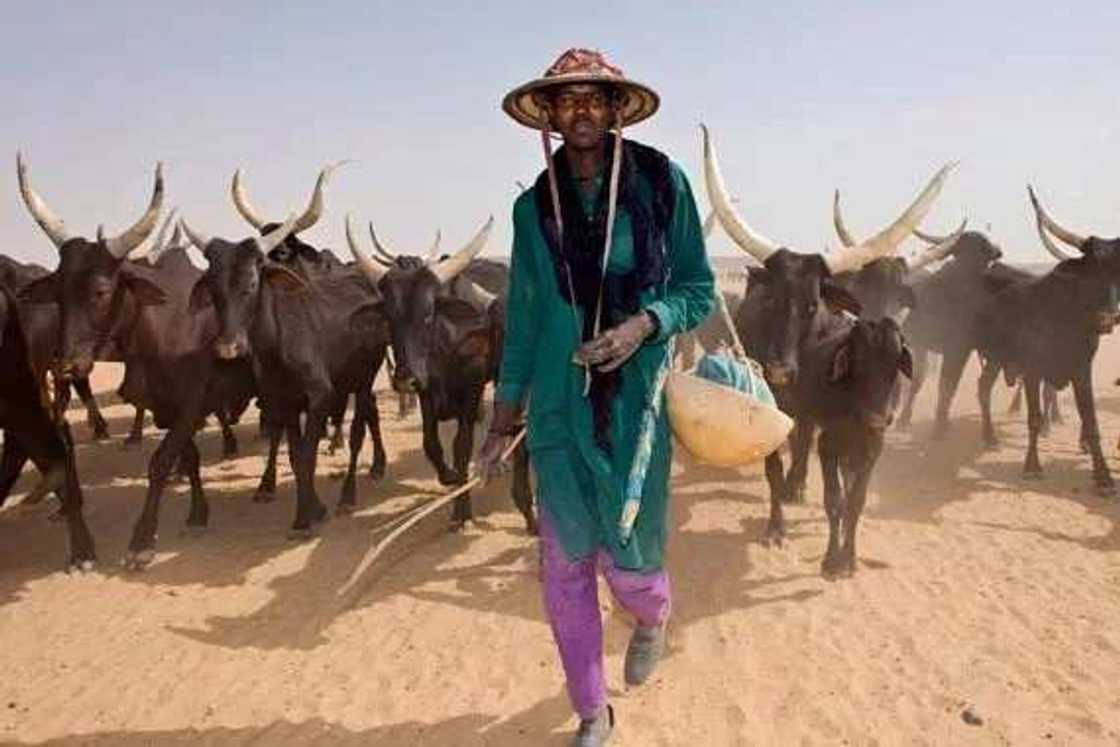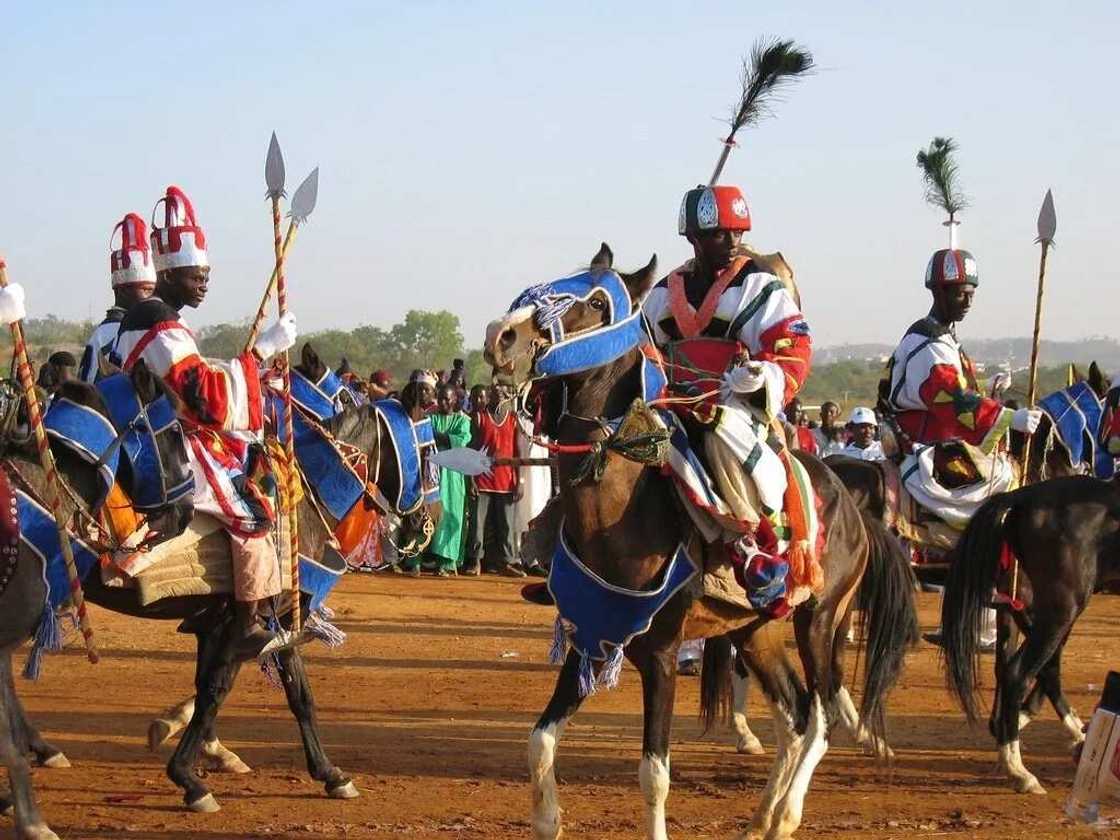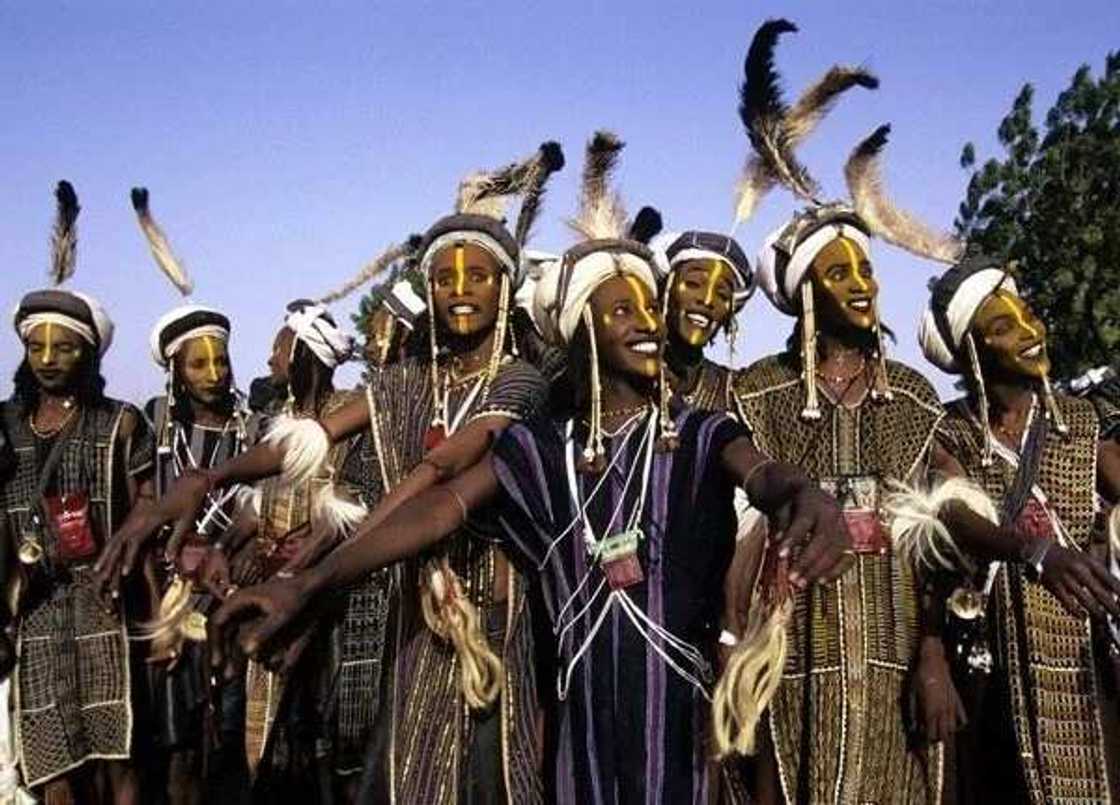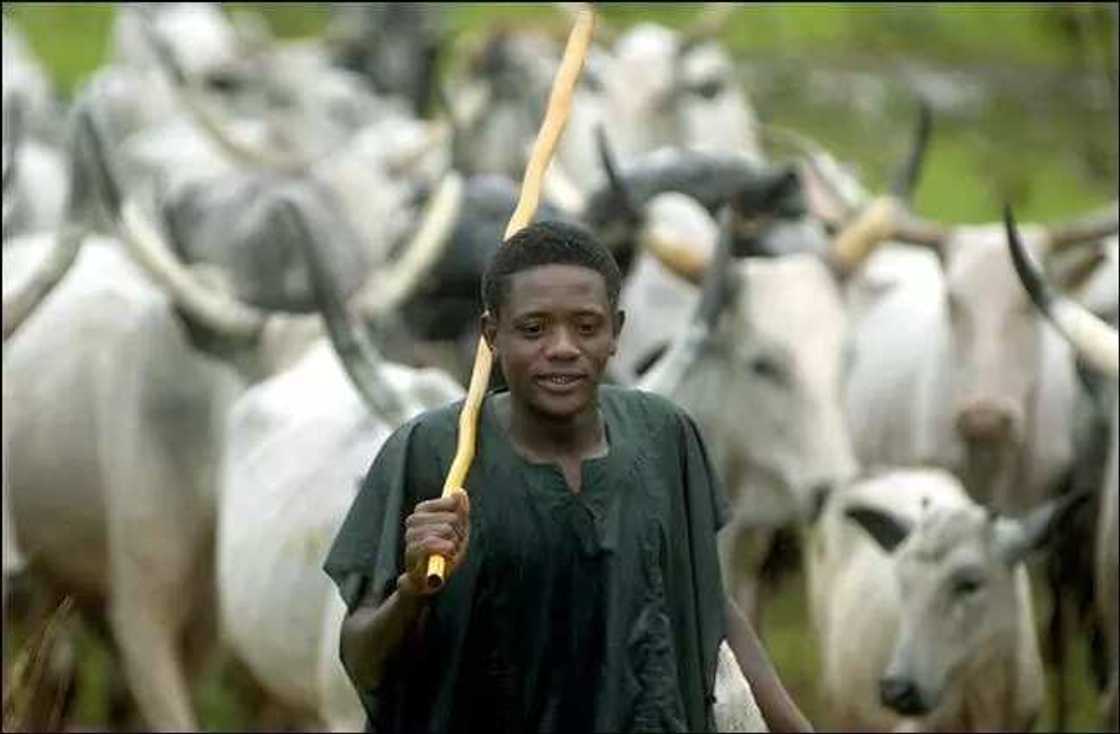The reasons Fulani herdsmen are powerful
Recent news of the havoc allegedly wrecked by Fulani herdsmen in different parts of Nigeria particularly the north central and southern parts of the country has continue to generate uproar with Nigerians wondering why the herdsmen seems to be above the law.
Truly, the Fulani herdsmen that you see with their herds of cattle might look frail, slim, poor and innocent but they are powerful more than you can ever imagine.
Legit.ng lists 4 reasons why the Fulani herdsmen are “powerful”.
The Fulani are not indigenous to Nigeria

Funny as that may sound but it is true. Historically, it is true that of all the ethnic groups in Nigeria, the Fulani are perhaps the only one not indigenous to Nigeria. The Fulani came as settlers in the early fifteen century as clerics in the Hausa city-states of Kano, Kastina and Zaria.
According to history, the people who are now referred to as Fulani entered present-day Senegal from the north and east and they moved eastward over much of West Africa after the tenth century. The herdsmen probably still believe that they have the freedom to go about their grazing activities just like it was done in the olden days.
The Fulani also colonized Nigeria

Surprised? Yes, Nigeria was colonized twice. It is common knowledge that Nigeria was first colonized by the British and Portuguese but what is often down played is that the Fulani also colonized a part of the country –the Hausa states in northern Nigeria.
Most Hausa city-states of the north was under the control of the Fulani by 1810, 6 years after the launch of Jihad under the leadership of the popular Fulani Islamic cleric, Shehu Usman dan Fodio.
The Jihad started after the Fulani immigrants (also called the Town Fulani) who had settled in the Hausa states of the north due to the attractive urban culture of the Hausa resented amongst other things what they considered to be an unfair cattle tax levied by imperfect Muslims.
So the Fulani in the town (Town Fulani), despite the influence exerted on them by Hausa customs joined the Cattle or Bush Fulani to begin a holy war which led to the conquering of most Hausa states.
Since then the Fulani refused to leave and gained more prominence and power due to the formation of the Sokoto Caliphate.
Could it be that this domineering attitude is responsible for the “above-the-law” posture that the Fulani herdsmen seems to be displaying?
They rely on backups from their kinsmen from other countries

The Fulani are so connected to themselves that they still see themselves as one regardless of the limitations imposed by geo-graphical boundaries.
Historically, the Fulani are said to be in 20 nations of Africa from Mauritania and Senegal to Sudan, Ethiopia, and Kenya with an estimated population of 7 to 8 million nomadic Fulani and 16 million settled Fulani.
It is not out of place for a Fulani from Chad to see a Fulani from Nigeria or Cameroun as one. The bond that exist amongst the Fulani in these countries is strong and should not be under-estimated.
The massacre that recently happened in Agatu land, Benue state was said to have been carried out by the Fulani “backups” originating from another African country (allegedly from Republic of Congo) after the herdsmen in Nigeria called for help from the “central command” in Congo.
Fulani have rich and powerful people on their side

Most people think that the herds of cattle that the Fulani herdsmen roam around with are their own. No, not in all cases. The herds of cattle are often times owned by rich Fulani men and women. The Fulani herdsmen in most cases enter into an agreement on how the calves or milk will be shared. This reason also makes them powerful since the herdsmen know that they are the major source of meat in Nigeria and they have prominent people to shield them.
Source: Legit.ng


